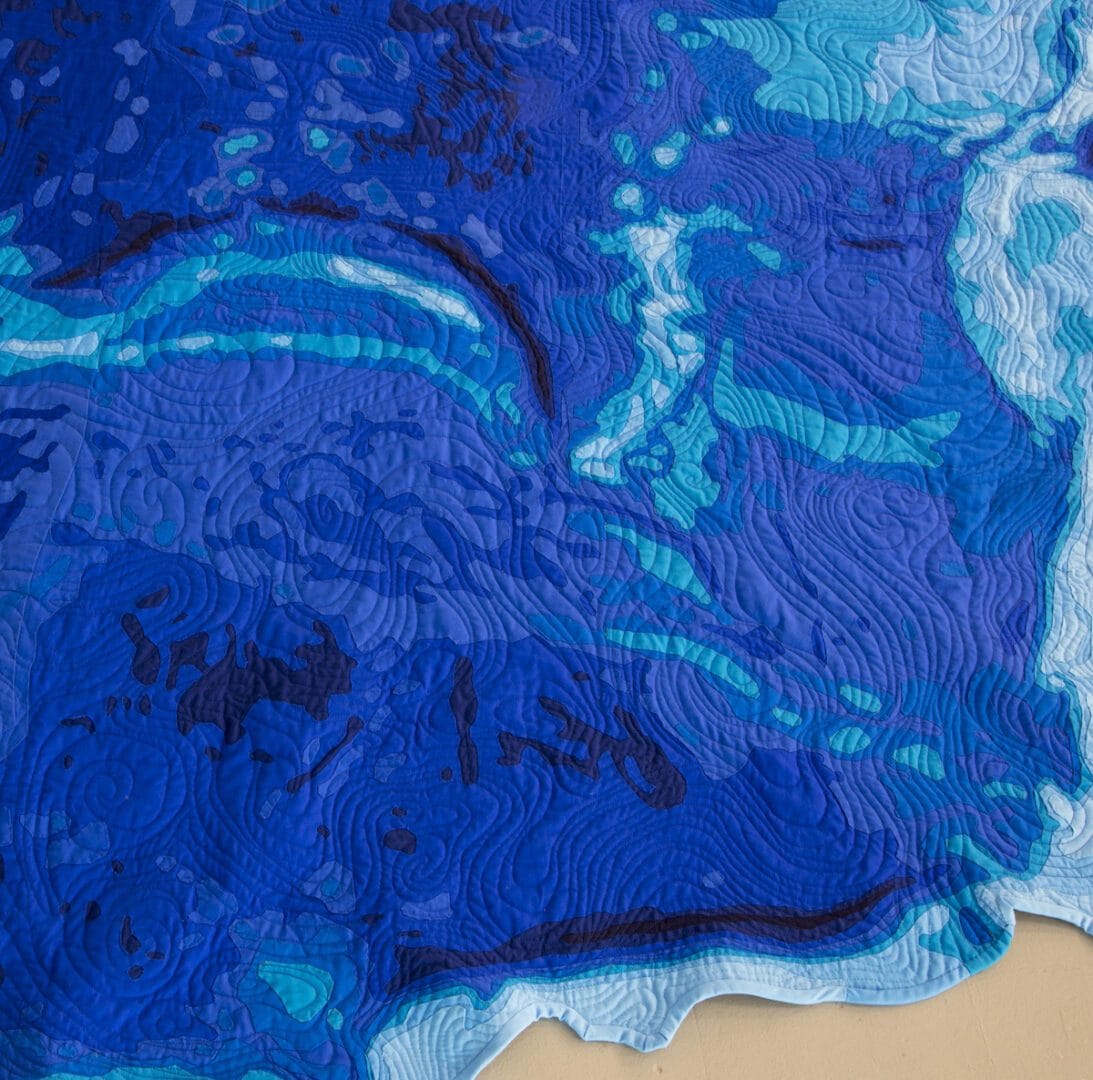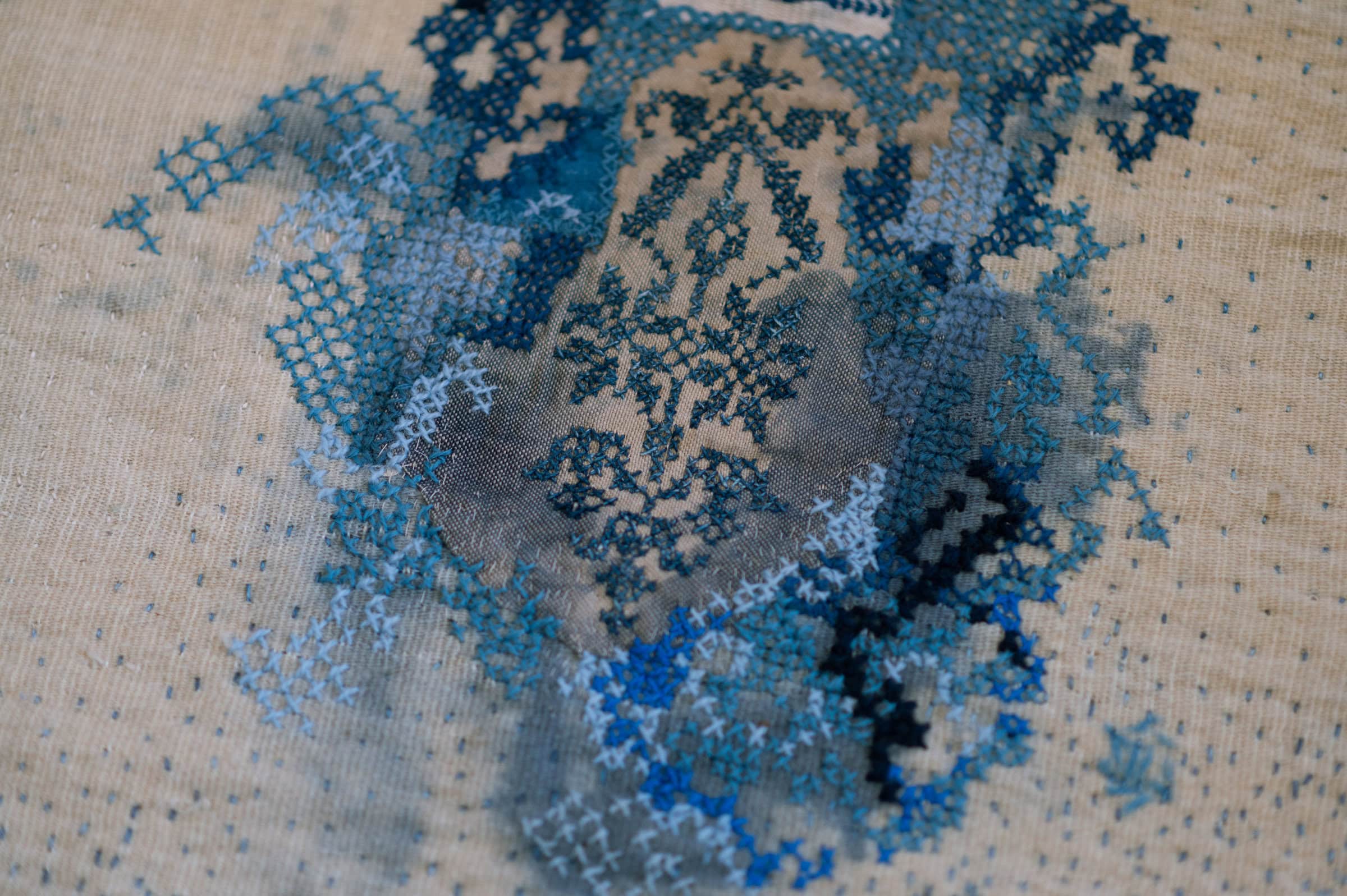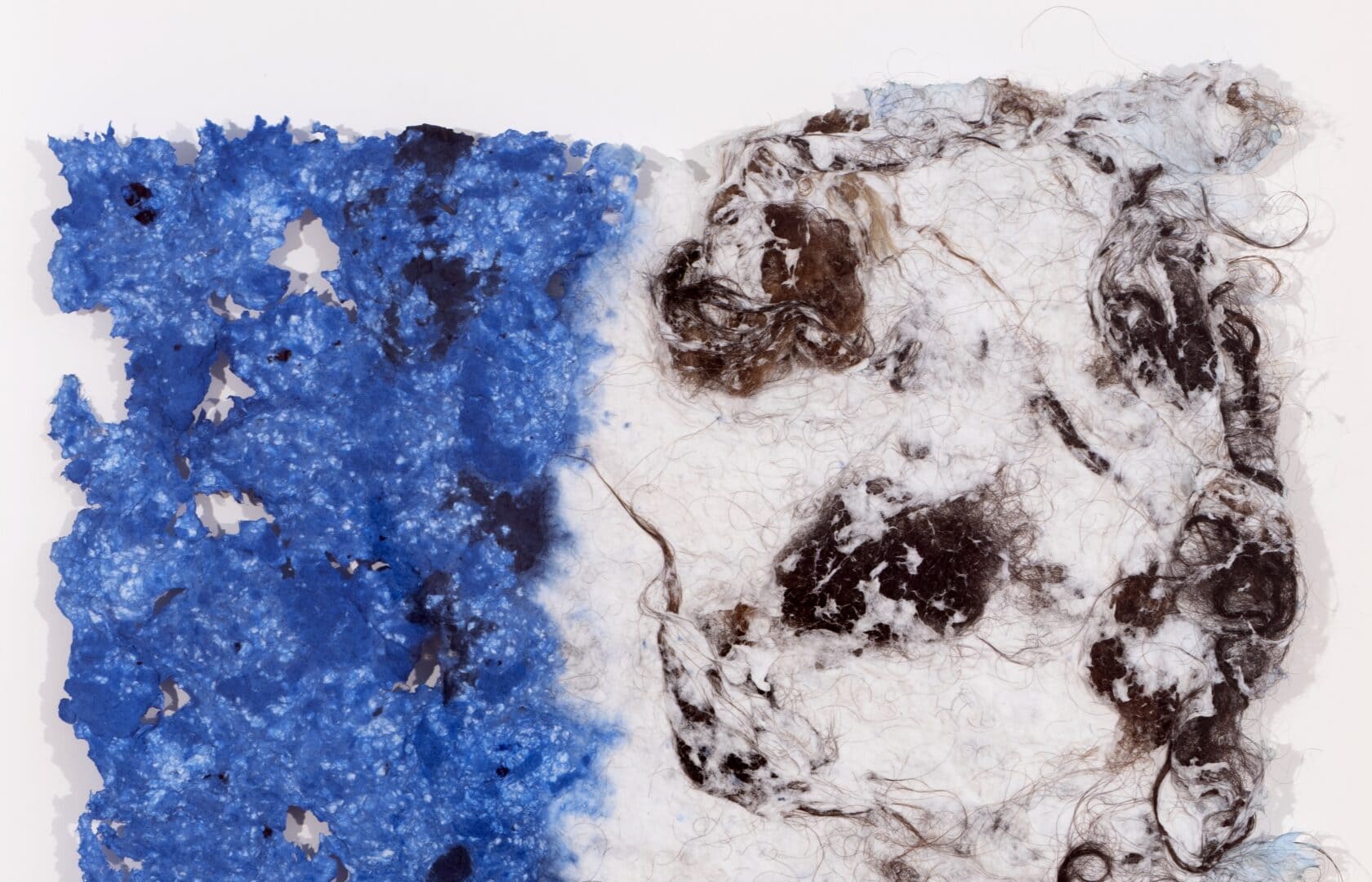Welcome to Tatter
BUILDING THE FUTURE OF TEXTILES
Join us in building a new gathering space in the heart of Brooklyn’s Cultural District. Help TATTER to create a home where we can continue to champion textiles, build community, and celebrate one another.

THE TATTER TEXTILE LIBRARY

BLUE, The TATTER Textile Library, opened its doors in
June of 2017. Serving as both an interactive, ongoing art-installation
as well as an academic research library, BLUE is an ever-growing
home to 6,000 books, journals, exhibition catalogs and
objects that examine and celebrate the global history, traditions,
makers, craft and beauty of textiles.
DONATE
BLUE: The TATTER Textile Library is a non-profit 501(c)(3) organization.
All donations made help maintain and grow the library.
SCHEDULE YOUR VISIT
"Sometimes my heart is tuned to a frequency that makes my body vulnerable. The Blues show me how to make this condition - this visceral reality - into shelter."
— FROM A Sound of Blue: Familiar Frequencies
Read article













